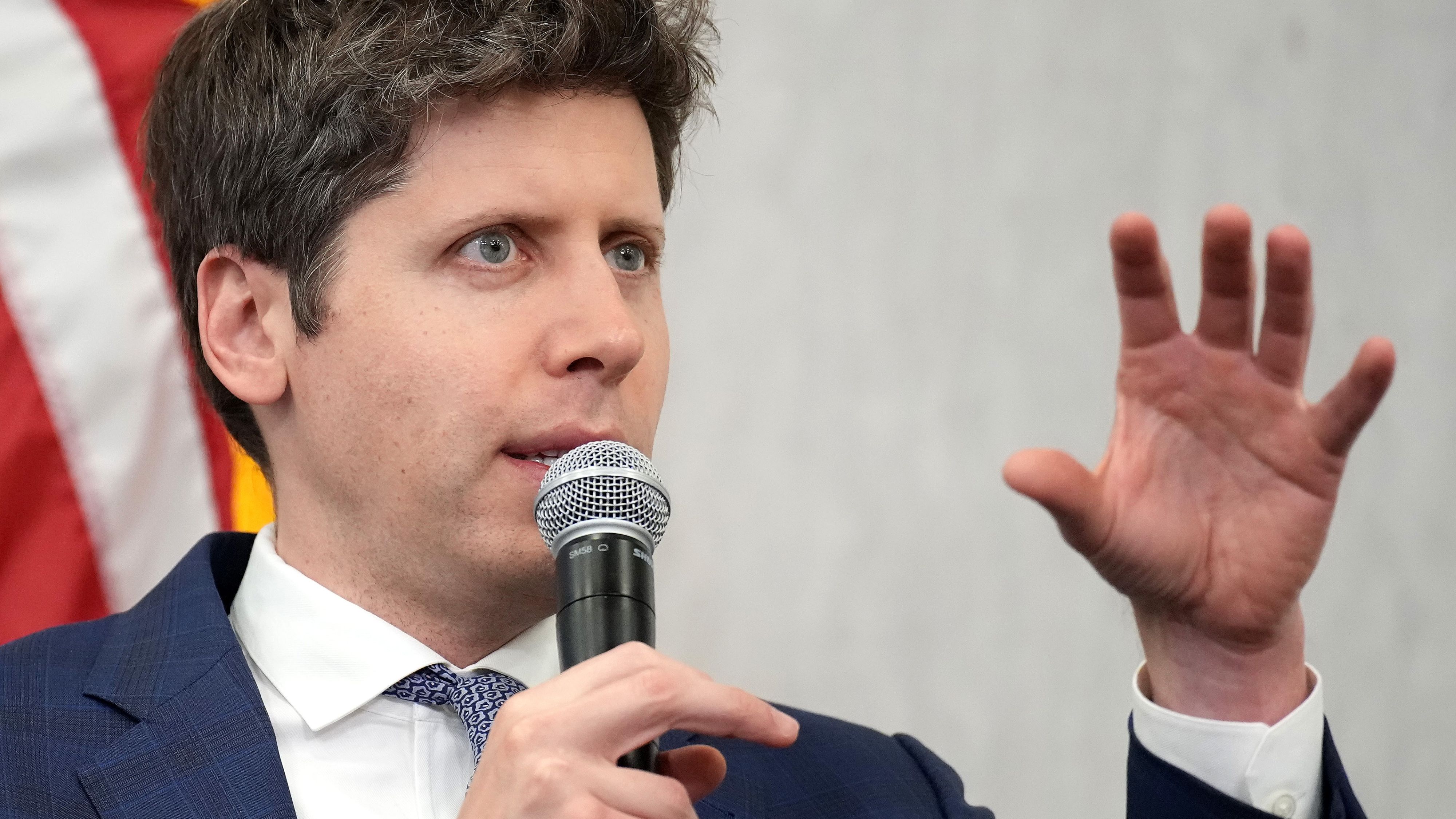Stanford study reveals 'Generative AI' steals the most jobs in exposed industries like coding — usually from young professionals

All the latest news, reviews, and guides for Windows and Xbox diehards.
You are now subscribed
Your newsletter sign-up was successful
A new study published by Stanford University is stoking fears anew that AI is stealing jobs from specific groups. This time, as the study posits, it's early-career workers who are seeing the worst results.
Stanford's paper, titled "Canaries in the Coal Mine? Six Facts about the Recent Employment Effects of Artificial Intelligence," takes a close look at jobs most exposed to the effects of generative AI.
It's stated that the "high-frequency administrative data" used by the study's three authors — Brynjolfsson, Chandar, and Chen — comes from "the largest payroll software provider in the United States."
The 57-page paper highlights the rapid growth of AI's capabilities in areas like coding, language, reasoning, and overall subject knowledge over the course of just a few years, as well as the rapid adoption of Large Language Models (LLM) by professionals.
The paper contains six key arguments to back up its claims: I've done my best to summarize them here.
Early-worker career opportunities are being gutted by AI
The Stanford paper's first major finding is that workers aged 22 to 25 are seeing the worst employment declines in the jobs most exposed to AI (including software development and customer service reps).
Countering this is the finding that an older or more experienced workforce in those same positions — as well as all workers in jobs less exposed to AI, such as nursing aides — is stable and still growing.
All the latest news, reviews, and guides for Windows and Xbox diehards.
These findings align with a Microsoft report from July 2025, which laid out the 40 jobs most susceptible to AI replacement — as well as the 40 jobs that seem most secure.
Since 2022, the early-worker age bracket has seen 6% employment decline in the most AI-exposed jobs, while older workers have enjoyed an increase of up to 9%. All this despite the finding that overall employment has continued to grow since the rise of generative AI.
These results suggest that declining employment [in] AI-exposed jobs is driving tepid overall employment growth for 22- to 25- year-olds as employment for older workers continues to grow.
Canaries in the Coal Mine? Six Facts about the Recent Employment Effects of Artificial Intelligence (Brynjolfsson, Chandar, Chen)
These findings echo what Anthropic CEO Dario Amodei has been saying for months. According to Amodei, governments need to "stop sugar-coating" the AI threat, and that AI could steal up to 50% of entry-level white-collar jobs.
Stanford's paper adds some nuance to Amodei's claims. It was discovered that using AI isn't necessarily linked to a decline in employment. Yes, there's been notable job loss in instances where AI can automate, but it's a different story for instances where AI can augment.
We distinguish between automation and augmentation empirically using estimates of the extent to which observed queries to Claude, the LLM, substitute or complement for the tasks in that occupation.
Canaries in the Coal Mine? Six Facts about the Recent Employment Effects of Artificial Intelligence (Brynjolfsson, Chandar, Chen)
Ultimately, the authors of the paper continue to see growth in job sectors that mainly use AI as an augmentation tool.
Findings suggest that job loss for early-career workers most exposed to AI does not correct "after conditioning on firm-time effects." That basically means that the authors have attempted to remove bias based on outside factors that could influence a firm's hiring policy.
As the authors state, "We test for a class of such confounders by controlling for firm-time effects in an event study regression, absorbing aggregate firm shocks that impact all workers at a firm regardless of AI exposure."
How is AI affecting wages? Not much, as it turns out. The authors discovered "little difference in annual salary trends by age or exposure quintile," which points to AI being more of an employment disruptor than one that affects wages.
Finally — and perhaps the scariest argument of all — is the statement that the paper's findings remain largely the same when using different test samples.
We find that our results are not driven solely by computer occupations or by occupations susceptible to remote work and outsourcing.
Canaries in the Coal Mine? Six Facts about the Recent Employment Effects of Artificial Intelligence (Brynjolfsson, Chandar, Chen)
The model used to analyze the data did not see the same results previous to 2022, when generative AI really began to pick up steam.
The authors make it clear that they believe these six facts could be influenced by factors other than generative AI, and they plan to continue tracking data.
AI could be a bubble that's nearly ready to burst
OpenAI CEO Sam Altman has previously stated that he's more worried about Gen X than Gen Z when it comes to AI-related job loss, which flies in the face of Stanford's study.
I'm more worried about what it means, not for the 22-year-old, but for the 62-year-old that doesn't want to go retrain or reskill or whatever the politicians call it, that no one actually wants but politicians, most of the time.
Sam Altman, OpenAI CEO
According to Altman, young people are best at adapting to the loss of job sectors. In a statement that could certainly be viewed as out-of-touch, Altman says he'd "feel like the luckiest kid in all of history" if he were 22 and just out of college.
It seems like the leading AI firms all have leaders who believe something slightly different in terms of AI replacement. Jensen Huang, CEO and co-founder of NVIDIA, has stated that "everybody's jobs will be affected," but believes humanity will really only suffer if it runs out of ideas.
Elsewhere, Meta CEO Mark Zuckerberg recently changed the trajectory of Meta's AI division to focus more on something he calls "personal superintelligence," which will empower individuals rather than rob them of careers.
While Stanford's research paper certainly doesn't look good for young workers, a recent MIT report stating that only 5% of AI pilot programs make it off the ground suggests that AI is in an ever-increasing bubble. Will it pop any time soon?

Cale Hunt brings to Windows Central more than nine years of experience writing about laptops, PCs, accessories, games, and beyond. If it runs Windows or in some way complements the hardware, there’s a good chance he knows about it, has written about it, or is already busy testing it.
You must confirm your public display name before commenting
Please logout and then login again, you will then be prompted to enter your display name.


